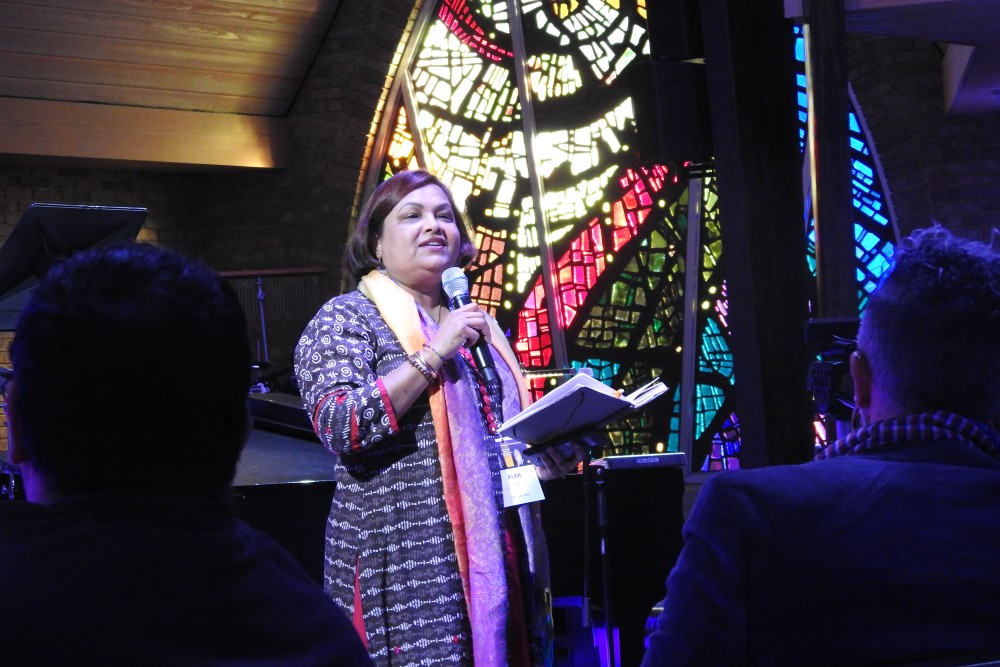At UM-Forward gathering, United Methodists consider a new “Liberation Methodist Church”

Some came wanting a new denomination. Others said they prefer, for now, to keep working within the United Methodist Church.
But all who attended a UM-Forward event held March 6–8 expressed commitment to gospel-based activism on various fronts, namely LGBTQ inclusion, but also reparations, workers’ rights, and climate change.
The Dallas gathering, called Trailblazing the Liberation Methodist Church, was held at Preston Hollow United Methodist Church, and the agenda included work toward forming a new denomination, as well as strategizing for the 2020 General Conference.




